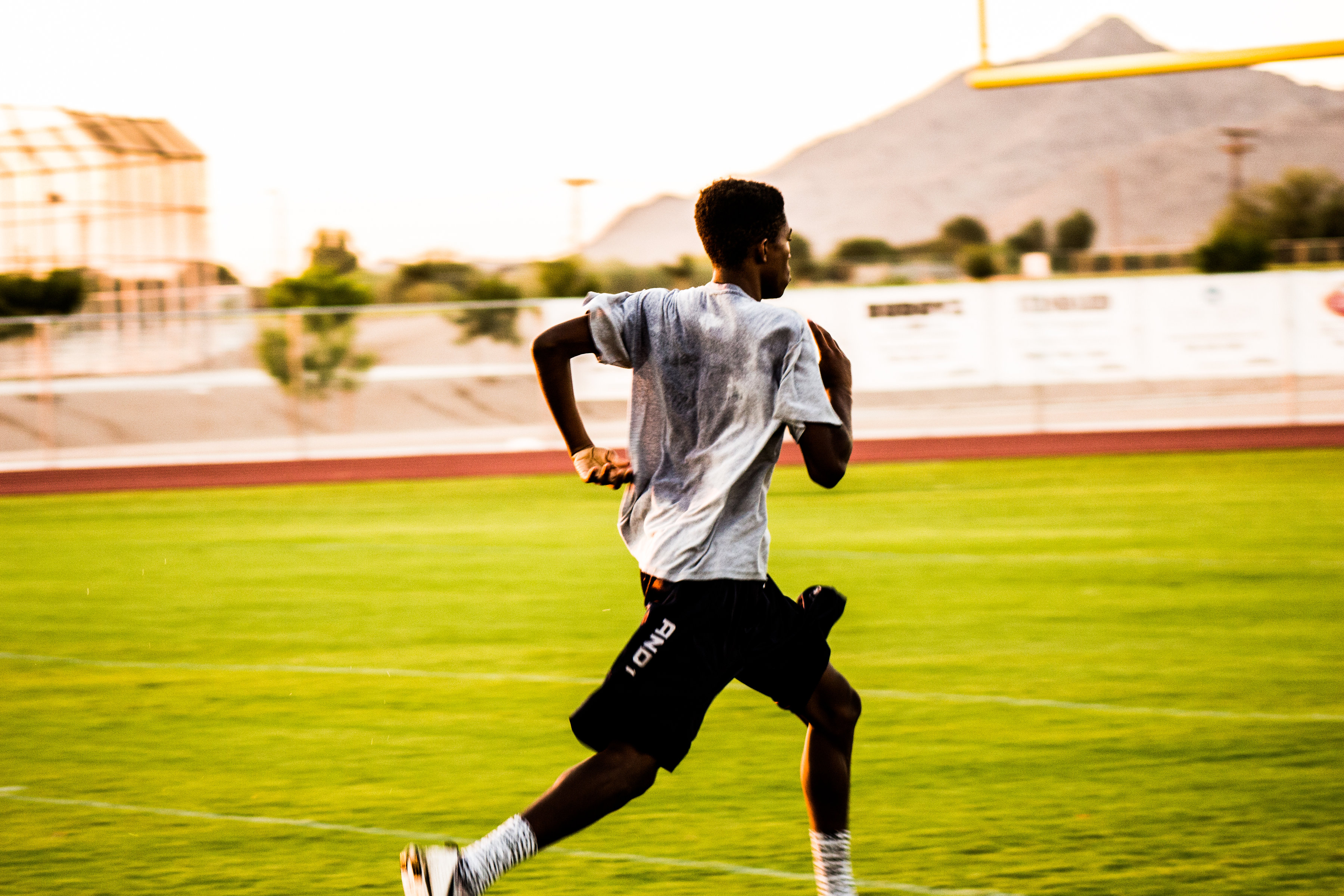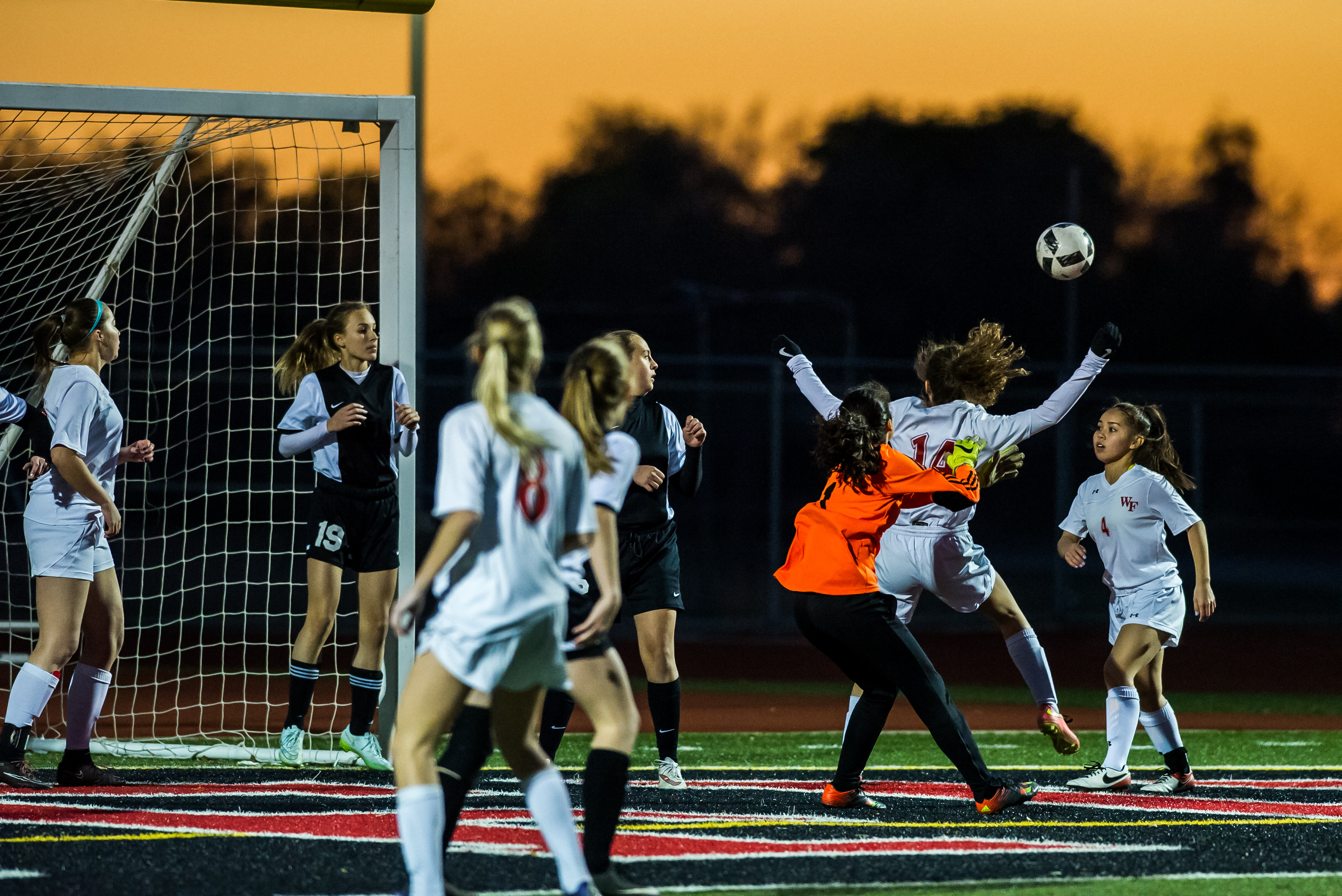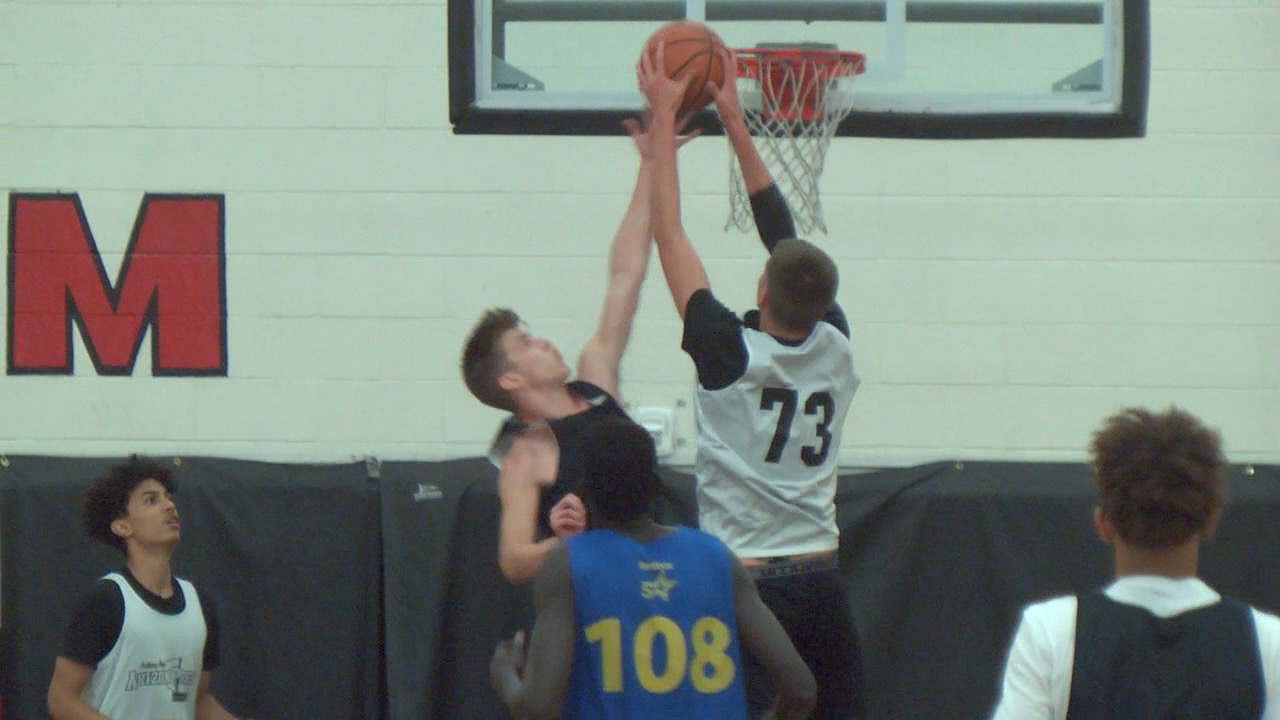(Photo Courtesy: Trevaia Williams-Davis)
As a young sprinter who once narrowly missed qualifying for the Olympics, Trevaia Williams-Davis medaled at the Indoor World Championships, the Pan American Games and an Olympic Festival while running events like the 4×400-meter relay and the 400-meter hurdles. Her husband, Terril Davis, set a school record in the 800 meters in 1991 while running track at Baylor.
But Trevaia never flaunts her medals, and Terril never brags about his record because they always wanted their son Isaac to find his own passion for track and field and run with it.
“If you have a passion for something and you’re doing it because you want to do it, you’ll put your all into it,” Trevaia said. “Once the passion develops in you and you do it, it’s more powerful than me saying, ‘Isaac, you have to do this.’ It’s a lot more powerful when it comes from inside Isaac.”
Isaac just finished his freshman year at Casteel High School, and he turned heads with a personal best of 50 seconds in the 400 meters. He took third in that same race at state, though he didn’t recreate that personal best and admits he could’ve done better.
Regardless, the 15-year-old said he recently ran a 49-second 400 during a summer training session, which is about six seconds faster than the normal varsity high school runner and just six seconds slower than the fastest time in the men’s 400 at last year’s Olympic Games. He also runs the 200 meters, the 4×100-meter relay and the 4×400-meter relay.
He’s found his passion, but it took time. Isaac remembers first stepping on a track when his mother coached a track club at Eduprize, a charter school in Queen Creek, Ariz. Isaac and his brother, Jayden, trained with the kids but weren’t eligible for meets.
Still, they were exposed to the sport’s competitive nature and the way first and second place are often separated by less than a second, which requires each runner’s full mental and physical effort during every millisecond of a race.
“The thing I remember most I’d say is the atmosphere of everyone wanting to be the best,” Isaac said. “You could really feel that people were trying their hardest. You could feel on the other side, the people who weren’t trying their hardest.”
When attending track meets with his family as a child, Isaac always had the same question: Why are these things so long? Many years later, the kid who didn’t even enjoy sports growing up was drawn to the one his parents when they were young.
“I didn’t know what I was capable of at the time when I started running and suddenly, I got excited that I was ahead of my game,” Isaac said.
Isaac’s post-season training regimen consists of doing different workouts each day. He has one difficult week followed by an easy week. At the end of a two-week period, he’ll usually be scheduled to run in a summer meet.
Most runners may opt for an indoor track or a treadmill to avoid the scorching Arizona summer heat, but not Isaac. He can be found running on an outdoor track in the scorching Arizona heat.
“You can only go so far off of natural ability, but to get to that next level, that’s when you have to step it up and put more training in and dedicate yourself to working harder,” said Isaac’s father, Terril, who would like his son to be even better than he was. “You have it in your DNA, but it’s up to you to work even harder to be even better.”
Working out in the heat is Isaac’s way of training at a higher difficulty than others who are confined to the cool air conditioning.
“I’d love to do that,” Isaac said of running in the AC, a nice thought that’ll never become reality for him.
Casteel track and field was Isaac’s first team since joining his middle school cross country team in 6th grade. He said his freshman year success has him pondering his potential and the possibilities if he continues working hard.
His mind isn’t on college yet, but it has drifted to lofty goals.
“If I ever made it to the Olympics, that would probably be the top accomplishment of anything I’d ever be able to do.,” he said.
Since her own career ended, Trevaia has coached runners at multiple schools, but she and Terril are coaches at home too. They help Isaac with workouts and eating right, teach him race strategies and motivate him along the way.
Trevaia recently taught Isaac how to run with headwind and tailwind after he struggled with the windy conditions at the state meet. Terrill said the next step for his son is to hit the weight room and improve his upper body strength, which is critical for sprinters.
Trevaia used to wonder why her own mother would sit in the stands for hours just to watch her run an event that may not even take a minute. When she and Terril sit for hours at one of Isaac’s track meets — often interrupted by coaches, parents and other runners raving about their son — she understands why.
“Even if Isaac were not to win, he’s won already in my heart because of how much he puts into it,” she said. “I would sit there 1,000 days and wait for him to run because he’s put all of himself into it.”



